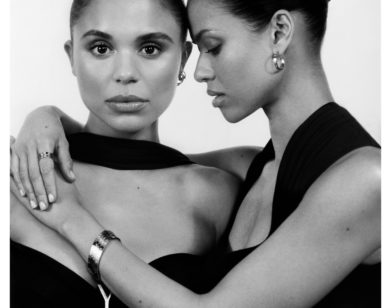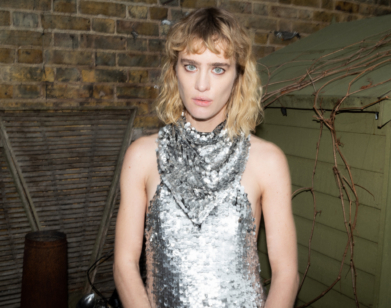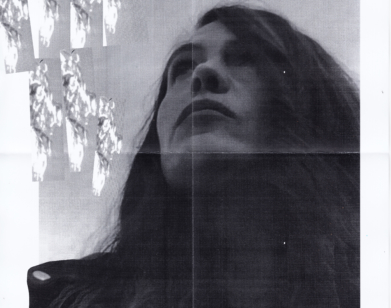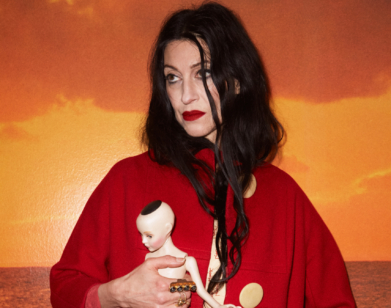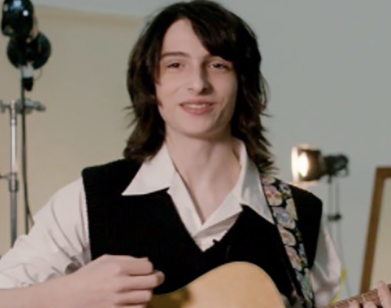Gugu Mbatha-Raw and Mackenzie Davis Reunite for This New Episode of Black Mirror We’re All In
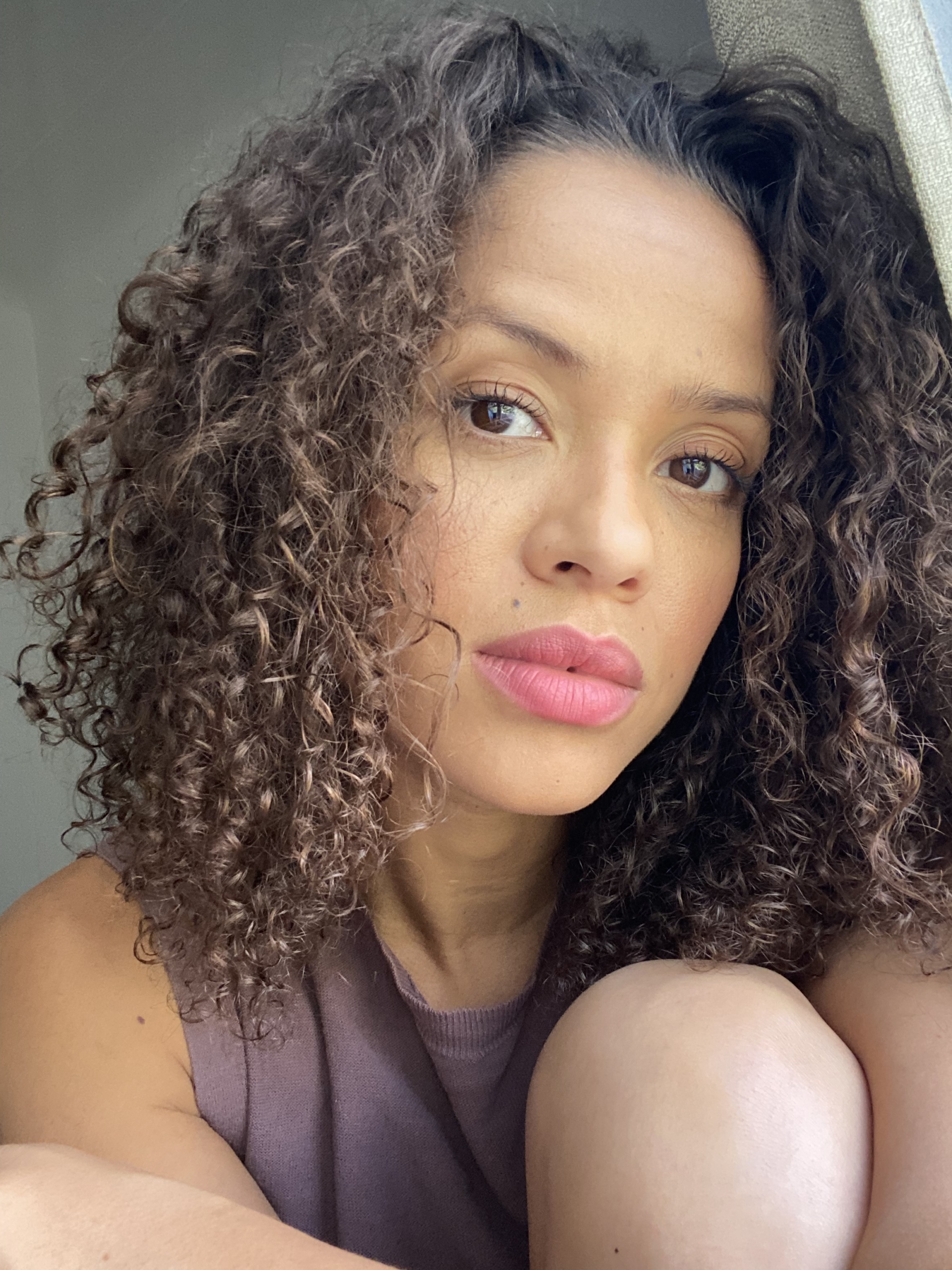
Since her breakthrough role in 2013’s Belle, Gugu Mbatha-Raw has made a career out of playing forward-thinking and boundary-breaking characters. As a mixed-race woman unwilling to conform to the aristocracy in 18th-century England, the British actress brought tenderness and toughness to the role, qualities she has carried through to other performances, such as the troubled pop star she played in 2014’s Beyond the Lights and the outgoing party girl Kelly in Black Mirror’s beloved episode “San Junipero.” In her latest role, as Vera in Jessica Swale’s Summerland, Mbatha-Raw takes on yet another period drama, exploring the limits of love and relationships during World War II. As she tells her friend and “San Junipero” co-star Mackenzie Davis, portraying well-rounded, multifaceted romantic characters—most of whom occupy spaces that weren’t created for them—is inherently radical, but also necessary. Below, the two actors discuss the lasting impact of their cinematic love story, traveling back in time to bring women forward, and the annoying task of explaining why they’re drawn to strong, political, rebellious parts.
———
MACKENZIE DAVIS: Hi, how are you doing?
GUGU MBATHA-RAW: Oh my god! I’m good, how are you?
DAVIS: I’m good. Are you still in L.A.?
MBATHA-RAW: I’m still in L..A. Where are you?
DAVIS: I’m in Canada.
MBATHA-RAW: I mean it’s such a strange time, isn’t it? I may see if I can pop home at some point, too. I just think being home in a pandemic, being in your home culture, is soul-nourishing. We’ll see, watch this space.
DAVIS: I had such a nice day yesterday. I did a Gugu double feature. I watched Summerland and followed it with Belle.
MBATHA-RAW: You’ve basically been in England for a whole day. You just went historically down the rabbit hole.
DAVIS: It was a nice historical and geographical spread of the English countryside and London in WWII.
MBATHA-RAW: Thank you, friend, for committing to that much screen time with me.
DAVIS: I kind of struggle to watch my friends work sometimes. If I know them, I don’t rush out to see their work. It’s nice to have a reason, because I love you and I admire you and the choices you make. Do you have that at all with other actors?
MBATHA-RAW: I love seeing things in the cinema. I’m not so good at watching whole TV shows. I usually just watch the first epsiode. Like, “It’s great—I’ve got the gist.” If my friends are on long-running things, I’m not great at keeping up. I trust that they are doing amazing work.
DAVIS: I feel the same way. First of all, I hate it when someone interviews me—I bristle at the psychoanalysis that goes into finding patterns in my work. I don’t know why I do things. But I think it’s interesting that you, and there are always exceptions to this, but in a lot of your work you play these very modern women who feel out of their time. You work a lot in period dramas and you often occupy this space of moving the conversation forward, either explicitly through demanding the conversation to be moved forward, or just existing in a space at a time when people would like you to apologize for being queer or female, or Black in an all-white, all-male space. I want to hear you talk about why you think modern Gugu time travels to bring women forward.
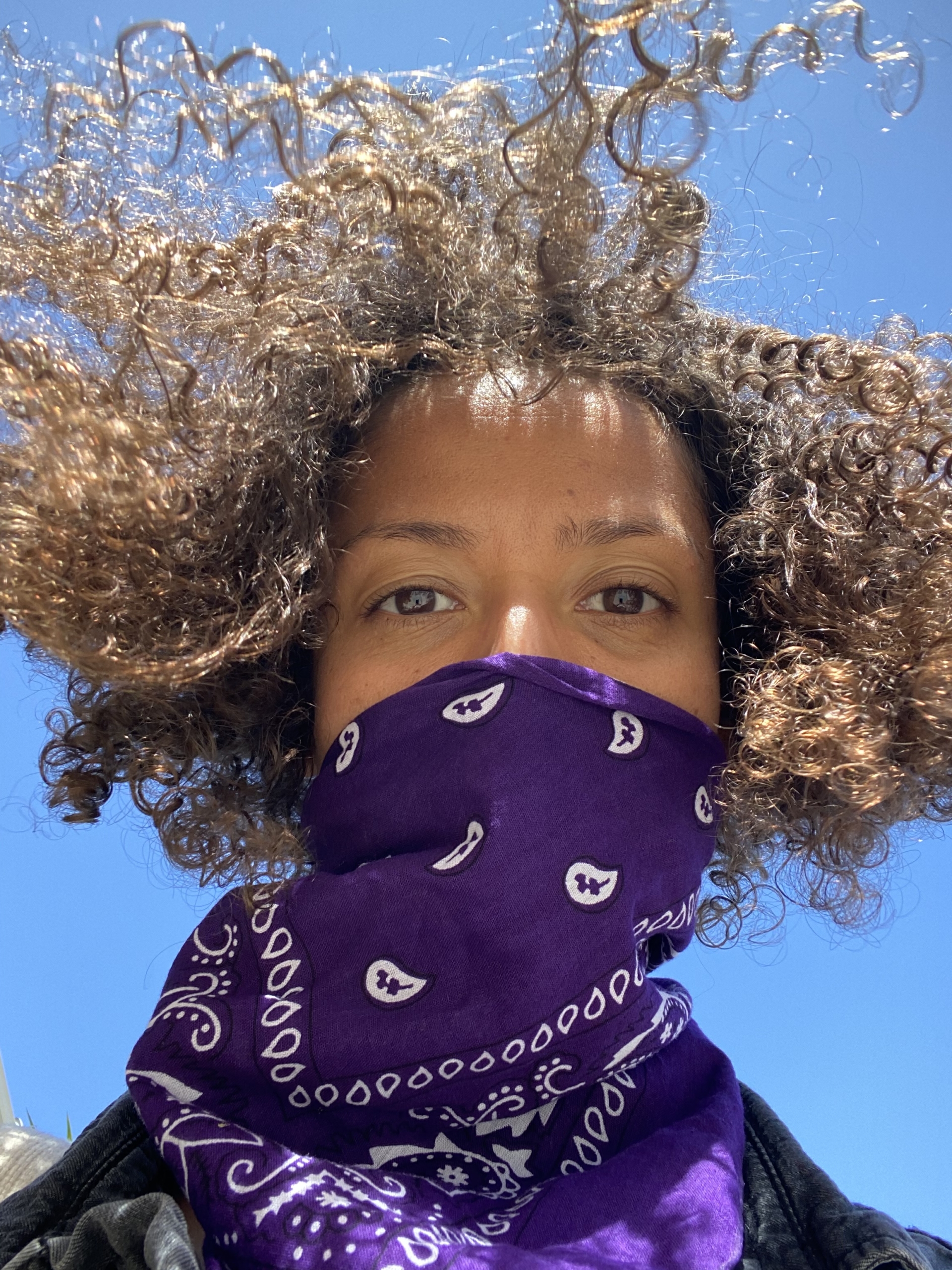
MBATHA-RAW: That’s a lovely observation. It’s funny reflecting on that myself because I don’t know how conscious that’s always been. I think I’ve always been drawn to the role that’s giving me, as an audience and as an actor, a new perspective on a world that we think we know. There are so many stories out there, and I feel we should be pushing the culture forward with what we’re doing, because otherwise, what’s the point? With something like Belle, having grown up in the U.K. with Jane Austen dramas and Charles Dickens adaptations on TV, to be able to be a part of that, I felt like that was my culture. I felt like I owned that culture, even though I’d never seen anyone who looked like me in any of those productions. I grew up so immersed in it; I felt part of it. There’s a part of me that’s probably conditioned to believe I belong in any time and space. Maybe it’s how I was raised. I always want to play whole, multifaceted human beings, and if the conversation is pushing the culture forward, I love that, too.
DAVIS: Isn’t that interesting? “San Junipero” is such a good example of that. And yet, I mean, I chose to do that for purely selfish reasons. I wanted a great role, and if you’re looking for unconventional roles, as an actress—and this is changing at a horrifically slow pace—it ends up being political just by not taking the space that you’re told you have to occupy. Everyone is hungry for this shit.
MBATHA-RAW: That’s the thing with storytelling, isn’t it? The more personal it is, the more universal it becomes. I was so overwhelmed and excited at how much people loved seeing “San Junipero.” I was surprised and not surprised. I loved it so much when I read it, and—like you say, for selfish reasons—it was joyful and a great role and such a unique and twisty cool story. Similarly, with Belle and Beyond the Lights, with those roles that confront stereotypical journeys, that has often been, purely selfishly, me wanting to stretch myself as an actor. To do different genres, not the same period or the same style of character that I’ve done before. In a weird way, sometimes when you’re stretching yourself, you’re also stretching perceptions in the culture at the same time, consciously or unconsciously.
DAVIS: We had this conversation recently in my backyard—we were at opposites side of the table, you never came inside, we had two separate glasses, and I never touched one of them! But we talked about how there’s a lot of pressure right now to speak. To kind of gild the lily when you’re doing press for a movie that is an unconventional role, or a romance with a slightly political bent. Sometimes I get frustrated and I really push away from me needing to declare why this is a strong female character or why this is feminist or why this is important, because I think the roles that someone chooses are all the evidence you need of their politics. Storytelling, in that sense, does affect culture in whatever small way, but you’re doing it via subterfuge, rather than explicitly.
MBATHA-RAW: I love that idea. I was talking to Amma Asante, the director of Belle, about that whole concept as well. In a sense, you’re smuggling your messages. When you get to really tell stories, you are moving people on an emotional axis. You’re not preaching to them. I love that with a body of work and a collection of roles, you can see, if you look closely, who the person is and what they believe in, through their choices. It doesn’t have to be spelled out. It’s up to other people to interpret.
DAVIS: That’s so clear in your career without it ever feeling like you’re making it a moral imperative for people to watch your movies if they’re a good feminist or if they’re a good person.
MBATHA-RAW: Oh god, that sounds so dreary and heavy. I love that you’re doing this interview, because, like you say, a journalist has often already written the story in their mind. Quite often, you feel like the questions are being asked to prove the point of view of the story they’ve already written—they just need a few quotes. It’s really refreshing to have an honest conversation with a peer about that process. If the work wasn’t good, if the character wasn’t interesting to play, I wouldn’t be doing it. When people talk about working with female directors or female directors of color, it’s like, nobody’s doing that for the sake of charity—we’re do it because it’s interesting and invigorating and the work is good and exciting to get into.
DAVIS: It’s a bit like when people ask about special effects. I’m as curious as anyone, but then it feels like the whole time you’re thinking about that instead of the story.
MBATHA-RAW: Exactly. Just let the story work on you. Let that go in via osmosis. It doesn’t have to be intellectualized. I think that’s the power of storytelling—it can transcend the intellect and reach you in a much deeper place. I think it is really powerful in being able to give us more perspective on the world, and on points of view that we often genuinely seem to overlook in our society.
DAVIS: What an absolutely gorgeous transition into Summerland. My first question is about Vera—what perfume does she wear?
MBATHA-RAW: I think Vera had Chanel. I feel like she was such a modern woman, but I wanted something which would have culturally been around during that period. I wanted it to be a lighter, brighter version. She was definitely a perfume-wearer—even though I have a scent for every character, it’s not always perfume. Sometimes it can be, like, an essential oil. But Vera was definitely a perfume person. She’s fun and zesty like a tall martini with a twist. The color yellow and gold were very much part of her wardrobe, so I wanted something that was kind of zesty and vibrant like her. Thanks for asking. Do you use perfume for characters?
DAVIS: No. I sometimes feel insecure because I’m not an actress in the way that I’ve always thought people were supposed to be actresses, but you very much are.
MBATHA-RAW: What are you talking about?
DAVIS: You do all of these really special, mystical things that root your characters and give them life.
MBATHA-RAW: I don’t know if they’re mystical. We all find things, right? I bet you have things. I know you have things.
DAVIS: Even though it’s sort of alchemical, there’s something really academic to your approach. It’s rigorous. You create something to step into. You create this atmosphere to live in for your characters and you feel it.
MBATHA-RAW: Well, she has experienced a lot in flashbacks and in memories, and scent memories are so vivid. The smell of that first boyfriend or girlfriend—it can take you to a place. Again, it sort of bypasses intellect. It takes you to a place on a sensory, emotional level.
DAVIS: There’s something radical about this character that feels kind of like it hasn’t been done before, especially in the sort of “strong female” conversation. Even in female-driven storytelling, we still hew pretty close to traditional narratives, where if society contains you, you die or live a miserable life, or you are the female who follows the roles of society and you also have a miserable life. She feels very radical to me because she makes this choice between romantic and maternal love, and chooses maternal love. It’s been regarded as a sacrifice, but at least in my reading of it, it felt really empowering. I don’t often see the choice of motherhood being portrayed.
MBATHA-RAW: You’re so right.
DAVIS: It’s a much more complicated telling of a strong female choice because it’s not the thing that we have been told for the past however many years. It’s complete independence. There’s something that feels uncomfortably progressive about that.
MBATHA-RAW: I agree, and I think it was something I hadn’t seen before. We were raised with the idea of having it all and being a career woman, and the fact of Vera and Alice’s relationship—it’s not the fact that they are gay that is the problem, it’s that they want different things out of life. Like any relationship, they reach a point where they want different things. Obviously, at that time and in that culture, to be able to get those things wasn’t really possible.
DAVIS: There’s so much nonfiction drama in our lives right now, and there’s so much to consume. I’m curious about where the Summerland of it all fits into the world that we’re in right now. Personally, I’ve found it hard to imagine other things than the extreme present moment.
MBATHA-RAW: We talked to Jess about this and where the story came from—in the sort of folklore of the British countryside. I think that she definitely felt like we’d lost the identity question of what it means to be British, and she was readjusting her identity as a British person amidst all the conversations that were going on. Going back to the land, going back to nature, and going back to that very elemental world was a way to root her love for the U.K. and what it really means to go back to history. Even now, I mean, god—spending time in nature, getting back to the elements, really has been the only grounding thing about surviving the pandemic. Being able to get out into the wilderness, connect to the trees, and nature.
DAVIS: Oh my god, I just did a one-week camping trip on my way up to Vancouver.
MBATHA-RAW: Yes, I want to hear about the camping trip.
DAVIS: I’ll tell you after.
MBATHA-RAW: The idea of a film like Summerland coming out right now—it’s got that romance but it’s also got that natural beauty for everybody who’s been cooped up for such a long time. I just think we need that in our lives.
DAVIS: I keep thinking about that shot of you looking through the camera at that thistle and taking a picture of it—how soothing it felt just looking close up for a second and to narrow your field of vision: “Just look at the thistle, do not look beyond the thistle, do not think about what’s happening in the back of the thistle, just take one second to mediate on the thistle and you will be okay.”
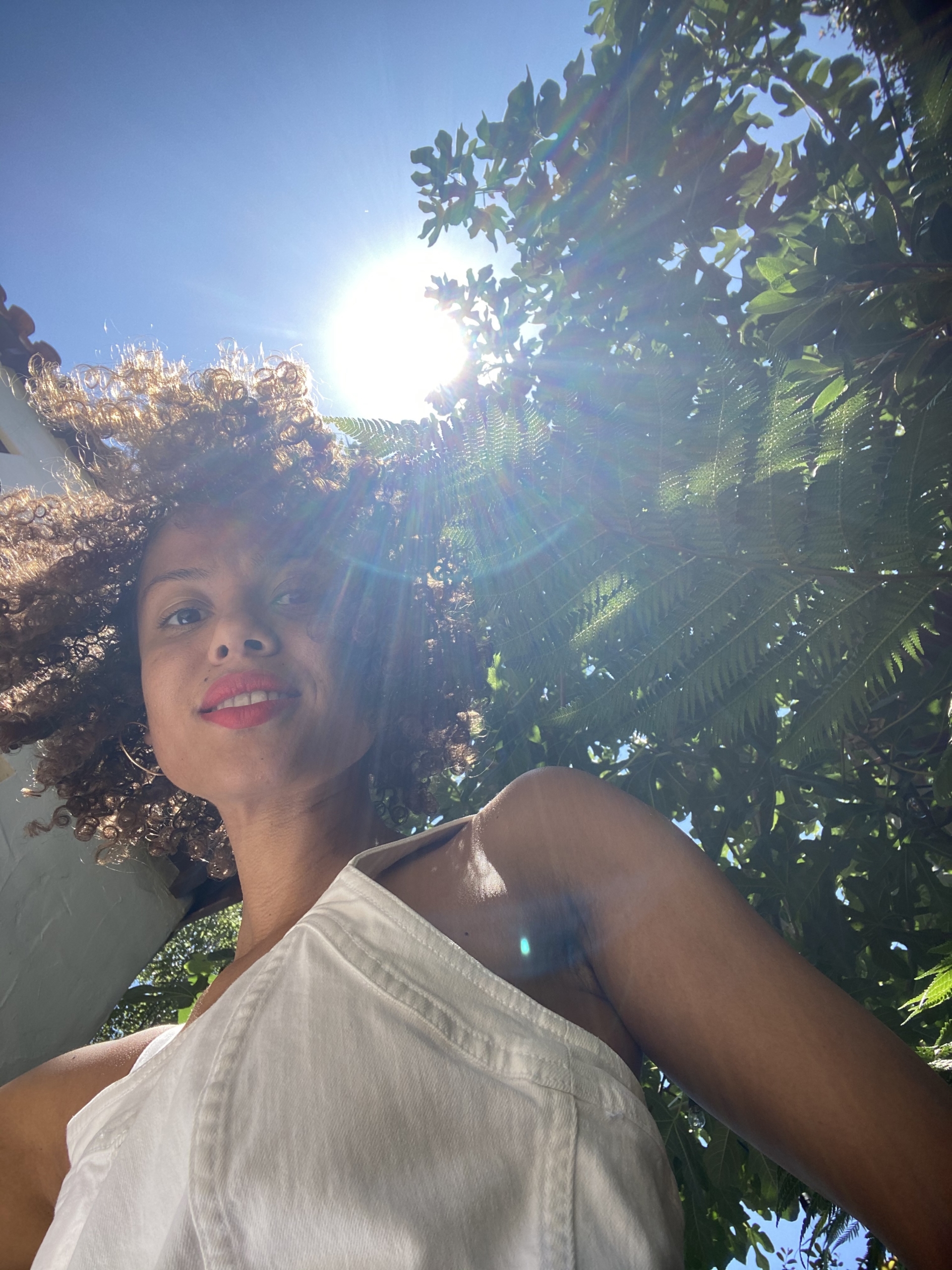
MBATHA-RAW: It is a meditation. I mean, that’s what I felt like—even in this time, just being able to do painting, rediscovering portraits of friends. I have to do a portrait of you, by the way. How have I not done this? You have to send me a picture.
DAVIS: I never assume that people are secretly amazing painters when they say they’ve “picked up painting,” but yours are incredible.
MBATHA-RAW: Bless you.
DAVIS: How dare you also be good at painting. Your Breonna Taylor was so beautiful, and George Floyd—I’m so moved by it, Gugu. Incredible.
MBATHA-RAW: I’ll have to send you some more stuff. I was going through my sketchbook last night, and I’ve done nearly 30 paintings. Again, quite selfishly, it started out to calm myself and soothe myself, and to connect with friends in a different way. It starts a conversation, and you feel closer to that person for having had that experience. The George Floyd and Breonna Taylor pictures—that was my lungs opening up a little more when all of that happened. It was just such a big shift for us culturally, and so emotional. I was painting every other day. It was a way to process that experience; by painting and honoring them, I was slowing down the shock of those moments, to give myself time to really meditate on what’s happening.
DAVIS: And to be able to process it physically, even if it’s gestural instead of just consuming information.
MBATHA-RAW: That’s it. You’re taking the control back, in a weird way, when your natural creative outlets are active. Do you paint?
DAVIS: I don’t need an artistic outlet. I need kind of a physical outlet. I like to build things and fix things, like working in a vegetable garden. I find it incredibly soothing. I thrive off the more meditative things. I only have two more questions. The first is, are you a dame?
MBATHA-RAW: Am I a dame? What do you mean? I am a member of the British Empire, which—well, in this day and age, I don’t know what that exactly means. I was honored by the Queen with an MBE, which is a great honor.
DAVIS: Will there come a point where a sword will be placed on your shoulders, or you’ll have a crown put on your head?
MBATHA-RAW: I don’t know if they do the sword for dames.

